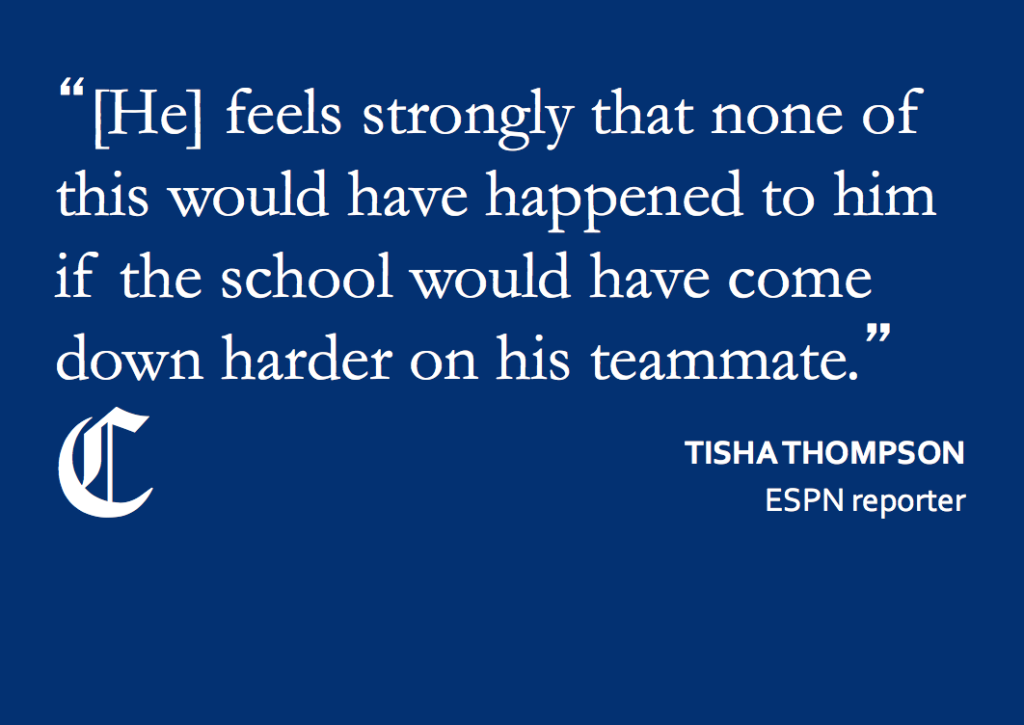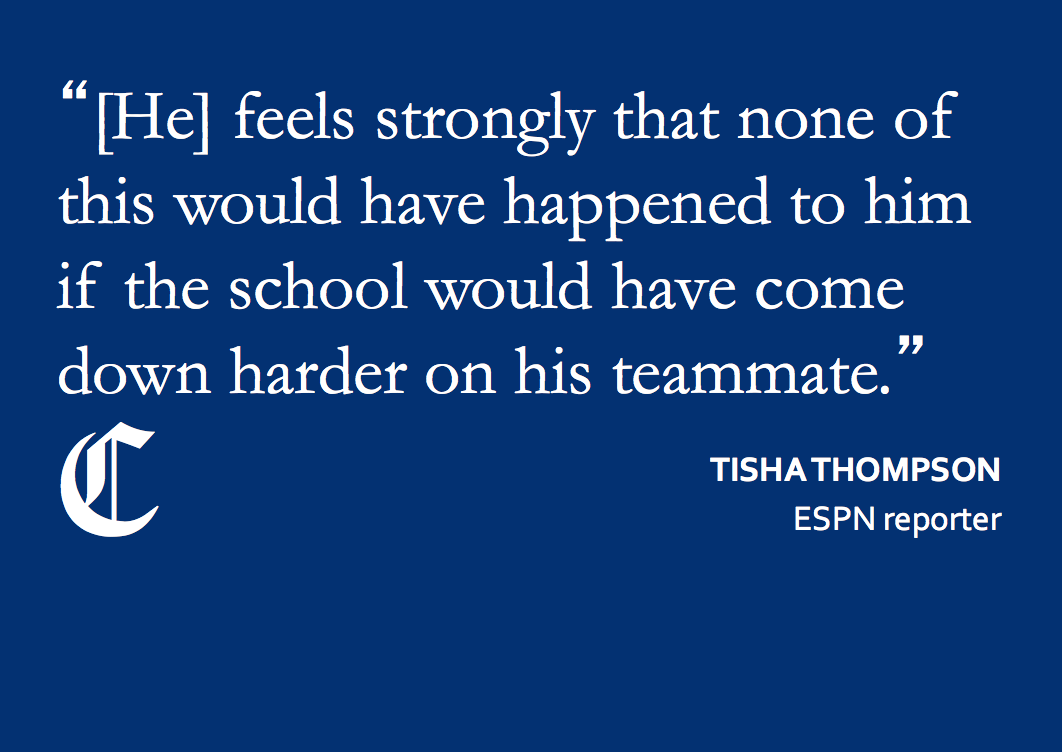In December of 2015, the University learned of a kidnapping of two varsity football players with sights on graduation in 2016. When the news spread, students were shocked, but then quickly relieved when the two held captive were found alive.
At the time, the optics of the situation were steeped in a narrative about how this dangerous crime had been solved by a respectable Public Safety investigation, neatly tied up.
But as we learned this summer, much had been held in the dark.
An “ESPN Outside the Lines” special report, executed by Tisha Thompson and Andy Lockett, exposed the truth: The students’ brutal torture was not the most jarring part of this story — it was how a player who dealt drugs and committed violence could remain untouched on UR Football.
Thompson and Lockett’s work, which combined an in-depth article with a harrowing visual segment, told the “movie-like” story of former UR defensive end Niko Kollias, one of the ordeal’s survivors, and his belief that he and the other student’s fate were linked to failures on UR’s part.
“Niko feels very strongly that the school knew. And says his coaches knew,” Thompson said in a podcast interview. “And feels strongly that none of this would have happened to him if the school would have come down harder on his teammate.”
It is clear that former assistant coach Dan Kyle imperiled his own players while trying to shield a star linebacker from legal punishment. He was more concerned with building on the team’s 2015 winning record than protecting the wellbeing of the team who had contributed to it.
Kyle wasn’t only involved in football — he also served as my supervisor for two years, overseeing a group of students who broadcast University athletics. It was disturbing to discover his unprofessional and impetuous behavior.
We do not currently know where Kyle’s $15,000 bail money for the star player came from, but we do know his actions were irresponsible and unacceptable. What I question, however, is why remnants of this coaching staff still remain today, namely Head Coach Scott Greene.
Though UR Football has kept quiet regarding the ESPN report and Kyle’s subsequent actions, I do not feel confident in this program’s future commitment to University values.
According to a mission statement from the NFL— addressing the sport’s values— the league concludes that football is a sport that “builds character” through “teamwork and sportsmanship.” The actions from UR players and staff bring the motives of sport to shame.
The University has — on many accounts — swept problematic circumstances under the rug (i.e., the EEOC complaint filed on Sept. 1). And its complicit responses to the events at 22 Harvest Street — where the students were tied and tortured — combined with recent upgrades to several sports facilities, makes for an unjust narrative.
Should the football team be rewarded with new amenities rather than be punished for treacherous wrongdoings?
In an interview on ESPN Rochester between Thompson, Mike Danger and Gene Battaglia on their show “The Sports Bar,” the hosts began the interview in shock, calling the University the “Crown Jewel” of the city.
Danger and Battaglia concluded their show by looking for answers. They pointed fingers at University President Joel Seligman and Head Coach Greene, speculating that their silence stems from the fact that they “know the lawsuit is coming.”
They questioned why the University would put a drug dealer first, with one of them shouting, “Please explain that to me, Scott Greene, please explain that to me, Joel Seligman.”
In this case, silence isn’t golden, and it won’t be able to protect the city’s most valuable commodity for much longer.
It takes a real courage to admit to a mistake — isn’t that at the core of being “ever better”?
“Everybody Talks” is a radio show on WRUR’s the Sting that highlights women’s involvement in sports and the social issues that surround athletics. You can listen to it every Friday from 1–2 p.m. on thesting.wrur.org.



